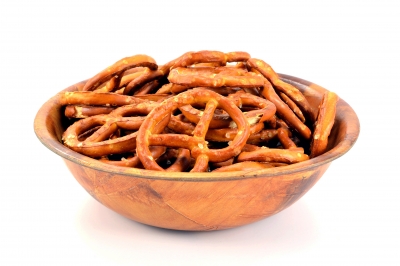BY CRISTIN CONNOR, MS, RN, BSN
 Tempering a child’s sugar intake is a part of creating good eating habits, but what about salt? Many children are overindulging in sodium-above the recommended amounts-and it’s leading to an increase in health risks.
Tempering a child’s sugar intake is a part of creating good eating habits, but what about salt? Many children are overindulging in sodium-above the recommended amounts-and it’s leading to an increase in health risks.
A report by The U.S. Centers for Disease Control and Prevention revealed that sodium intake is linked with systolic blood pressure and there is risk involved for pre-high blood pressure and high blood pressure among children and adolescents. Furthermore, this association might be more likely among those children who are obese or overweight.
Although children are under the microscope, adult sodium intake is on the rise. Most Americans, however, take in well above the recommended limit of sodium each day, running the risk for high blood pressure–especially for adults that are overweight or obese.
The latest government dietary guidelines recommend that most Americans should not consume more than 2,300 milligrams of sodium daily, with the minimum being 1,500mg daily, according to guidelines.
Although older children tend to consume more salt than younger children, the more sodium a child intakes, the likelihood of higher blood pressure readings, and are twice as likely to experience pre-hypertension or hypertension compared to those who consumed the least amount of salt, the CDC study indicated. Additionally, for children who were overweight or obese, they increased their risk of high blood pressure by 300 percent compared to the group who had a lower salt intake.
As you start to gather ingredients for your next family meal – or even begin to pack the kids lunch sacks – be mindful of these 10 foods that could account for 44 percent of all sodium they consume:
- Bread and rolls
- Cold cuts/cured meats
- Pizza
- Fresh and processed poultry
- Soups
- Sandwiches and cheeseburgers
- Cheese
- Pasta dishes (e.g. spaghetti with meat sauce)
- Meat dishes (e.g. meatloaf with tomato sauce)
- Snacks (e.g. chips, pretzels, popcorn and puffs)
– Cristin Connor, MS, RN, BSN is the health promotion executive for Blue Cross Blue Shield of Arizona. Connor works with large employers and national employer groups providing strategic health and wellness support. She’s a registered nurse and holds a Bachelor of Science in nursing from University of Phoenix specializing in cardiac care, catheterization & medical surgical nursing; along with a Master of Science in adult health, wellness & physiology from The University of Akron and a Bachelor of Science from Ohio State University.
*This is not a medical recommendation, anyone with concerns or questions about their health should contact their physician. Blue Cross Blue Shield of Arizona is an Independent Licensee of the Blue Cross and Blue Shield Association.




